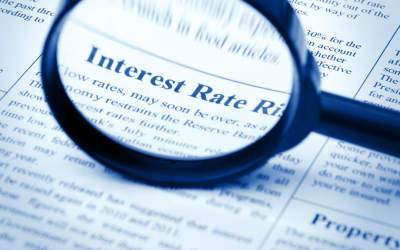Investing in a property is a complex process that requires a great deal of research and deliberation. But when done right, property investment is a smart, wealth-building strategy that can provide financial security for you and your family now, and for years to come.
Here we’ll look at the key questions you should think about before you apply for house or property financing to avoid ending up with a poorly performing property, a limiting home loan, and other unwanted financial surprises.
1. Is the property a worthwhile investment?
If you’re eyeing a particular property for earning money, you must ensure first that it is a worthwhile investment. There are many factors that contribute to a property’s return potential like the ones below:
The property (house, unit, townhouse, apartment building, etc.) itself – What condition is the property in? Does the property cater to the demographic of the area? For example, a one-bedroom apartment is not going to have the demand of a four-bedroom house in a suburb populated by families.
The location – Location is the most crucial aspect of property investment. Opt for a property in a desirable location that is close (10km or less ideally) to a city or town centre. In the Sydney region, there’s great demand for property in inner suburbs, as well as outer suburbs with good public transport links to the city centre.
The price of the property – As you make plans to apply for financing, you will need to set a realistic budget. Be sure to look at properties that are within your budget.
The investment potential of the property – Do market research, and look for a property with promising capital growth or a high rental return. If you can find a house or apartment with both, even better.
2. Am I getting the best deal on my home loan?
There are many home loan deals available on the market at any one time. Choosing the best one though can be a challenge.
First, you’ll need to consider whether you’d like a fixed rate or variable rate loan. Whichever you decide on will depend on the financial climate of the property market. As a guideline, variable mortgage rates currently sit around at 5%. Fixed rate interest rates are currently quite low in Australia, so they may be worth considering. Remember, you or your professional advisor can negotiate with lenders to secure for yourself a better deal.
Then, you need to research all options. Look beyond the big banks and read up on house financing options across all lenders. Compare like-products and seek expert financial advice to ensure you are not getting ripped off.
3. What extra costs will I need to cover?
Aside from the cost of the property itself, you will need to cover several costs and fees through the purchasing process. These include:
Stamp duty – This fee varies from state to state and will depend on the cost of the property. For example, if you buy an investment unit for $500,000 in Sydney, you can expect to pay just under $18,000 for stamp duty.
Additional fees – Aside from stamp duty, you will also need to pay a transfer fee and mortgage registration fee.
Lenders Mortgage Insurance (LMI) – If you are borrowing over 80% of the property price, your lender may require you to take out LMI. Click here to know more about LMI.
Building inspections, pest inspections, and other fees relating to the property itself.
4. Will my financing be affected by my employment circumstances?
Certain employment circumstances impact the house financing process. For example, if you are self-employed, your loan application will look a little different, depending on whether you do or do not have full, up-to-date tax returns. If you’re a medical professional, as a second example, you will have an easier time securing a loan.
Be aware of your personal and employment circumstances, and call on financial advisors to ensure you take every step necessary to secure the best home financing option.
5. Am I aware of the terms and conditions?
Like all contracts, home financing agreements have their fair share of terms and conditions. It’s always a wise idea to read these and make sure you understand what they mean. If you do not grasp the terms and conditions associated with your home financing agreement, you could end up making a financial or even a legal mistake. This can have a negative impact on your ability to invest in properties in the future.
6. Am I aware of the legal fees involved?
Whether you are a business or individual investing in the property market, you may need to hire legal professionals to ensure the property transfer runs smoothly.
You will need to pay a legal professional to do the following:
Conveyance – This involves the legal transfer of property ownership from one individual or group to another.
Searches – It is imperative you have a legal professional perform title searches on the property in question. These searches confirm that the seller is legally entitled to sell the property.
Build your knowledge of financing in the investment property market
With all of these in mind, you need to ask yourself whether or not you are confident in your ability to choose the right property and secure the best financing option. If you’re not 100% sure, it’s a smart idea to seek professional financial advice first rather than making a guess and rushing into a decision.
The experts here at Clever Finance Solutions have the tools, experience, and expertise to help guide you into making the best property investment decisions. Please don’t hesitate to contact us so we can start helping you be on the path to securing a better financial future.




